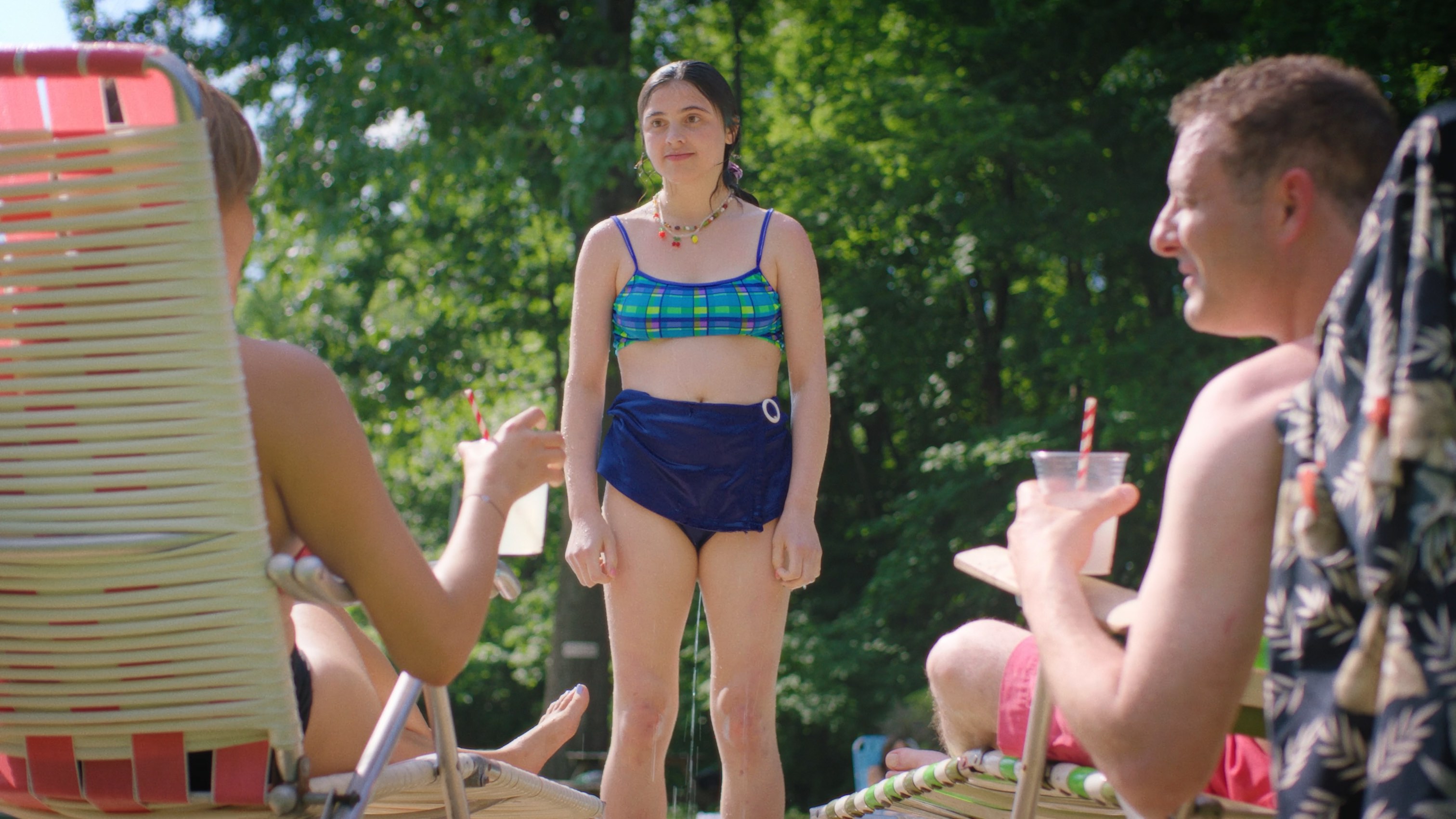It’s father’s day, so teenager Ceci and her dad Eric have planned to spend the day together at the pool. While at first she has her father’s full attention, that quickly changes when an attractive young woman arrives. In Father’s Day, writer/director Kali Kahn captures, with great sensibility, the moment when a teenage girl stops seeing her father as just that, and starts to also see him as a man.
“There’s nothing anyone can do to restore that intimacy”
Starting to see our parents as actual flawed people is part of growing up. It happens to all of us, in very different ways. With Father’s Day, Kahn pens a complex and layered narrative, recreating that moment while also addressing the gender dynamic between men and women. “I was interested in that uncomfortable moment that happens in girlhood when we stop seeing our fathers as an extension of ourselves”, the writer/director reveals. Explaining that she believes dads go from being seen as “protectors and heroes”, to being viewed as the “other”, in just one afternoon, the way Ceci sees her dad will forever be changed. Nothing overly dramatic happens, but it’s enough for the character to question herself and the way she sees her father and as Kahn so perfectly puts it: “there’s nothing anyone can do to restore that intimacy”.
Kahn shared with us that the inspiration for the film came from different personal anecdotes, but of course the story is incredibly universal and relatable. From the opening shot, the film invites us to this pool day and we can feel the sun-soaked energy radiating from the screen. While the story is told from Ceci’s perspective, the distance we have as viewers grants us the understanding of the bigger picture, as her emotional journey is expertly crafted, and her evolving dynamics with her father, and the young woman are what makes the film so compelling. The element of cringe and the awkwardness of the situation is deftly handled by Kahn and we can feel, from our seats, Ceci’s initial fascination evolve into jealousy towards the young woman.

Tori Lemelin (centre) as Ceci a young girl whose impression of her father changes after her dad’s cringey interactions with a young woman at the pool
Portrayed as a mundane afternoon, which won’t ever be forgotten by the young girl, I found it fascinating that instead of really seeing her father’s faults, Ceci at first blames the woman. Her father is her hero and obviously, that’s what most daughters have been conditioned to believe, so it’s only when the pool attendant comes to check in on the woman that she is forced to see the situation as it really is. As the film ends, we witness Ceci left having to deal with both the fact that her father is a man that can be very cringe, and the guilt of misplacing the blame on the woman, which resulted in getting those two idiots to steal her top. It’s a lot to take in and the reason that Father’s Day should stick with you long after watching.
After hitting the festival circuit this year, we’re excited to host the online premiere of Kahn’s short just a few days before father’s day. The director is now already working on a new short and her debut feature, both of which are set in Miami.

 Céline Roustan
Céline Roustan